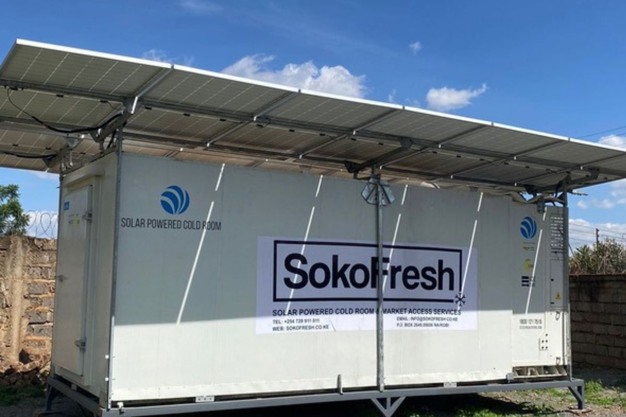Of all the origins of technologies applied to agriculture, Kenyan players rely mainly on Indian technology in various equipment categories, according to Denis Karema, CEO of Soko Fresh.
Karema describes his operations: “At Soko Fresh, we specialize in the supply of solar-powered cold rooms for Kenyan growers, particularly small-scale farmers, and we also have our own production of fresh produce. We have an assembly plant in Kenya, and most of our equipment comes from India. Overall, India is the leading supplier of agricultural machinery in Kenya.”

The industrialist justifies his choice of India for the origin of his equipment: “We explored several options five years ago when we had just launched our company. The Indian option proved to be the most appropriate in several respects. We found that Indian manufacturers were very flexible when it came to customizing parts and were willing to go the extra mile when it came to testing, whether in India or Kenya. They have their own patents, not to mention of course the quality of the equipment and the similarity of use between growers in our two countries.”
“It’s a choice that’s more relational than transactional, justified by the solidity of the technology and the entrepreneurial spirit of the Indian players,” Karema continues. There’s no language barrier, either in our meetings or in the manuals written in perfect, localized English. It must also be said that there is a vibrant Indian community in Kenya and that the history of trade between our two countries goes back a long way.”
According to Karema, the cost of Indian equipment is higher than that of equipment from other origins, such as China, but more affordable than European equipment. He adds, “However, we have found that the maintenance costs of Indian cold rooms are lower and that the cost of ownership and longevity of the equipment justify the higher investment.”
“In several other categories, such as tractors and machinery for various agricultural operations, our colleagues also rely on India as their main source of supply,” Karema adds.
The flow of equipment imports from India is not affected by the logistical implications of the Red Sea crisis, according to Karema. “We have had to adapt our import programs, but this has not had a major impact on our operations,” he concludes.
For more information:
Denis Karema
Soko Fresh
Tel: +254 721 667 409
Email: [email protected]
www.sokofresh.co.ke
